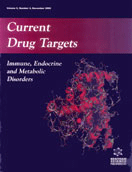Abstract
The incidence of allergic conditions which include asthma, allergic rhinitis, food allergy, urticaria, atopic eczema anaphylaxis and food allergy, is increasing around the world and these are considered to be some of the important causes for morbidity in paediatric population that may also lead to mortality. The link between genetic and environmental factors influencing the allergic disease development is complex. The strategy to treat allergic diseases includes avoidance of allergen, pharmacotherapy, immunotherapy and patient education. Pharmacotherapy is the basis of treatment options because it helps reduce the symptoms and also improves the quality of life. Medications used to treat allergic diseases include H1 antihistamines, Leukotriene inhibitors, corticosteroids, Th2 cytokine blockers, bronchodilators, decongestants, mast cell stabilizers and anti-IgE drugs. Pharmacological therapy should take into account the safety, efficacy, cost-effectiveness, disease co-morbidities and patient satisfaction during management. For sensitized children, exposure to allergens should be avoided to prevent the probability of the onset of diseases. This article provides an overview of drugs and anti-allergic pharmacotherapeutic agents recommended in the paediatric population for allergic conditions based on the available scientific evidences.
Keywords: Allergens, Allergic diseases, Allergic rhinitis, Allergen-specific IgE, Anti- IgE agent, Anti-allergic drugs, Asthma, Atopic eczema, Bronchodilators, Decongestants, Food allergy, Glucocorticosteroids, H1 antihistamines, Leukotriene inhibitors, Mast cell stabilizers, Paediatric population, Th2 cytokine inhibitors, Urticaria.






















